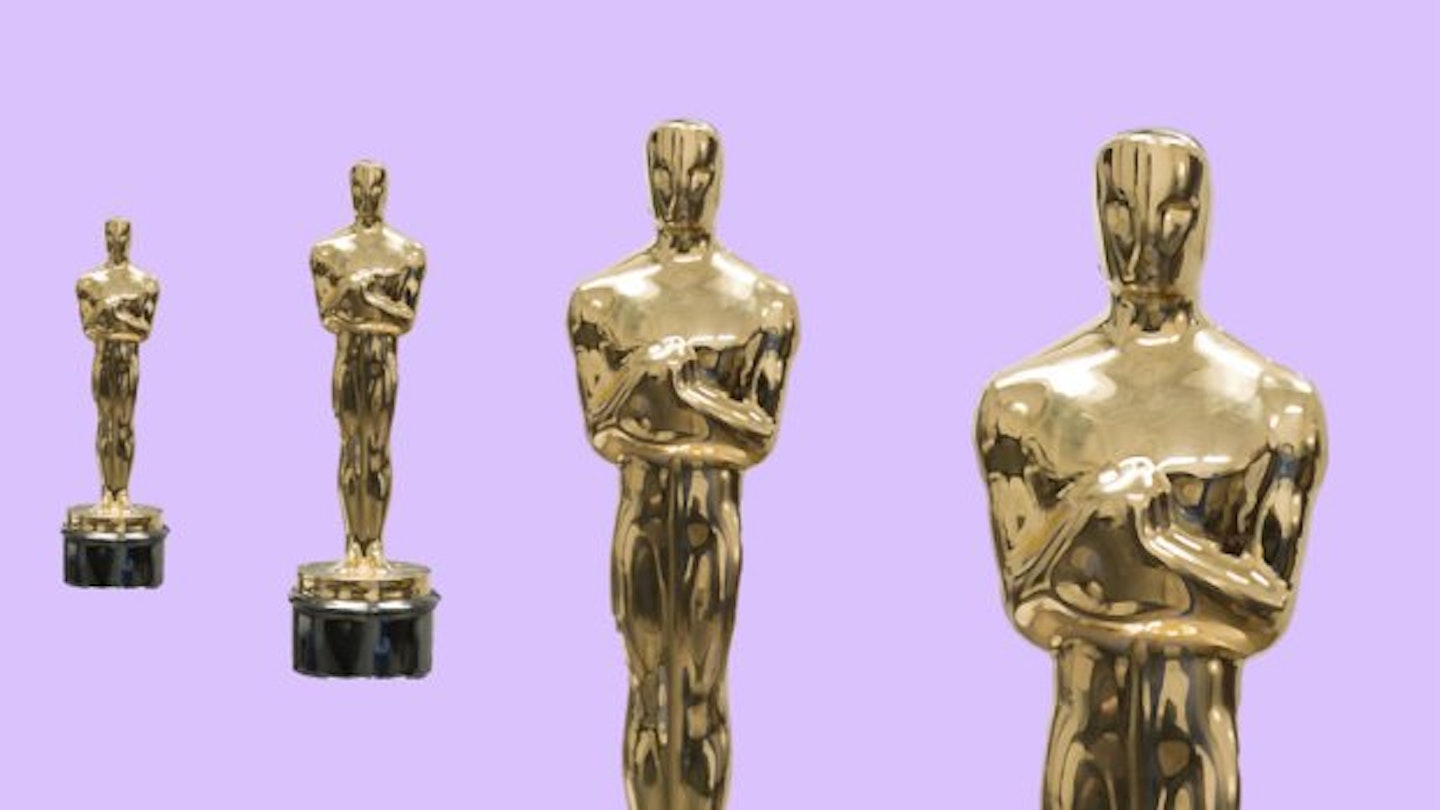Do you actually remember who won which award at the Oscars last year? Leonardo DiCaprio finally had his moment but he used it to address climate change. #OscarsSoWhite dominated most of the conversation and on the night it was Joe Biden’s speech followed by Lady Gaga’s tribute to sexual assault survivors that moved us all.
Quite frankly, most of us probably don’t care all that much about so and so’s mentor who was super supportive of their Oscar-winning role. It’s nice and I’m sure they’d get in trouble if they didn’t give family and colleagues a dutiful (read: boring) shout out. But that’s not what we, the audience, are listening out for.
The Oscars gets interesting when things get political. We become invested in the elaborate spectacle of televised awards ceremonies when celebs march up to that podium and address the real shit that we are worried about too.
Of course, there are times when one celebrity’s half-assed tweet in support of women’s rights can feel a bit like a desperate attempt to score woke points. But occasions like the Oscars reassure us that the entertainment industry is actually invested in challenging the political landscape, in a very public, broadcasted to millions of people, kind of way.
If you take the racial narrative, urges to end college campus sexual assaults and the reminder that ‘climate change is real’ out of the equation, what would we have to say about the 88th Academy Awards? And you’d be forgiven for having no idea that the Oscars are in the 89th year.
The 2017 Oscars isn’t going to be any less political than the last. And we can thank Donald Trump for that. The travel ban and the divisive discourse that surrounds Trump's presidency have been poignantly addressed at the awards ceremonies that came earlier on in the year (we still have goose bumps over Meryl Streep’s powerful Golden Globes speech) so there’s a lot of anticipation for what’ll be said by who at this one, the biggest and final ceremony of the season.
Now, here’s some interesting information for you; according to the Hollywood Reporter, most Trump voters don’t have time for politicised speeches. The National Research Group did a survey of 800 Americans (equally split between Hillary and Trump supporters) and it found that two-thirds of people who voted Trump will turn off award shows as soon as the speeches start to get political. Yeah. Very interesting, isn’t it?
You see, besides the gawping at the beautiful dresses that flounce across the red carpet and never not having a mini heart attack at the amount of money spent on those goody bags, I think the Oscars, like many of the awards that come before it, kind of acts as a chance for audiences who don’t actively keep up with politics to engage with what’s going on. Like it or hate it, when a celebrity endorses an opinion on an international platform, people listen up. So for me, those figures say a lot about the people who elected Donald Trump as President of the United States of America, who some might argue are politically ignorant. If those figures are anything to go by, it’s safe to say there won’t be many pro-Trump Americans tuning into the show year.
A politicised awards ceremony is no new thing. Some of the biggest moments in Oscars history have addressed hugely important issues. When Halle Berry won Best Actress for Monster Ball back in 2002, she was the first black woman to do so. ‘This moment is so much bigger than me’, she said. Way back in 1973, Marlon Brando turned down the award for Best Actor in The Godfather and sent actress Sacheen Littlefeather up to make a speech protesting the way the film industry treats Native Americans.
The agenda often reaches further than the industry itself, though. Filmmaker Michael Moore won the award for Best Documentary Feature in 2003, the year that the US invaded Iraq. In his acceptance speech, he said: ‘We live in a time where we have fictitious election results that elect a fictitious president. We live in a time where we have a man sending us to war for fictitious reasons. We are against this war, Mr. Bush. Shame on you’. Albeit his speech was met with very mixed responses at the time, that was always going to be a given, but it was so important. It was then and it is now. And the echoes of the current state of affairs that are found in Michael’s speech are pretty fucking chilling, to say the least.
The Oscars extend beyond the films themselves and beyond the actors who star in them. And that's because as soon as someone takes to the stage and uses their 45 seconds of speech time to address the social political landscape of the time, our ears perk up and we suddenly remember that the awards are playing in the background. These are the bits that make headlines the next day, the bits that take the Oscars out of this mystical realm of celebrity and cement it in real, tangible life. And that's why, deep down, we continue to care about what goes down at the Academy Awards.
Like this? You might also be interested in…
Meryl Streep Gave An Incredibly Important Speech At The Golden Globes
Everything You Need To Know About The 2017 Oscars Nominations
Follow Jazmin on Instagram @JazKopotsha
This article originally appeared on The Debrief.
